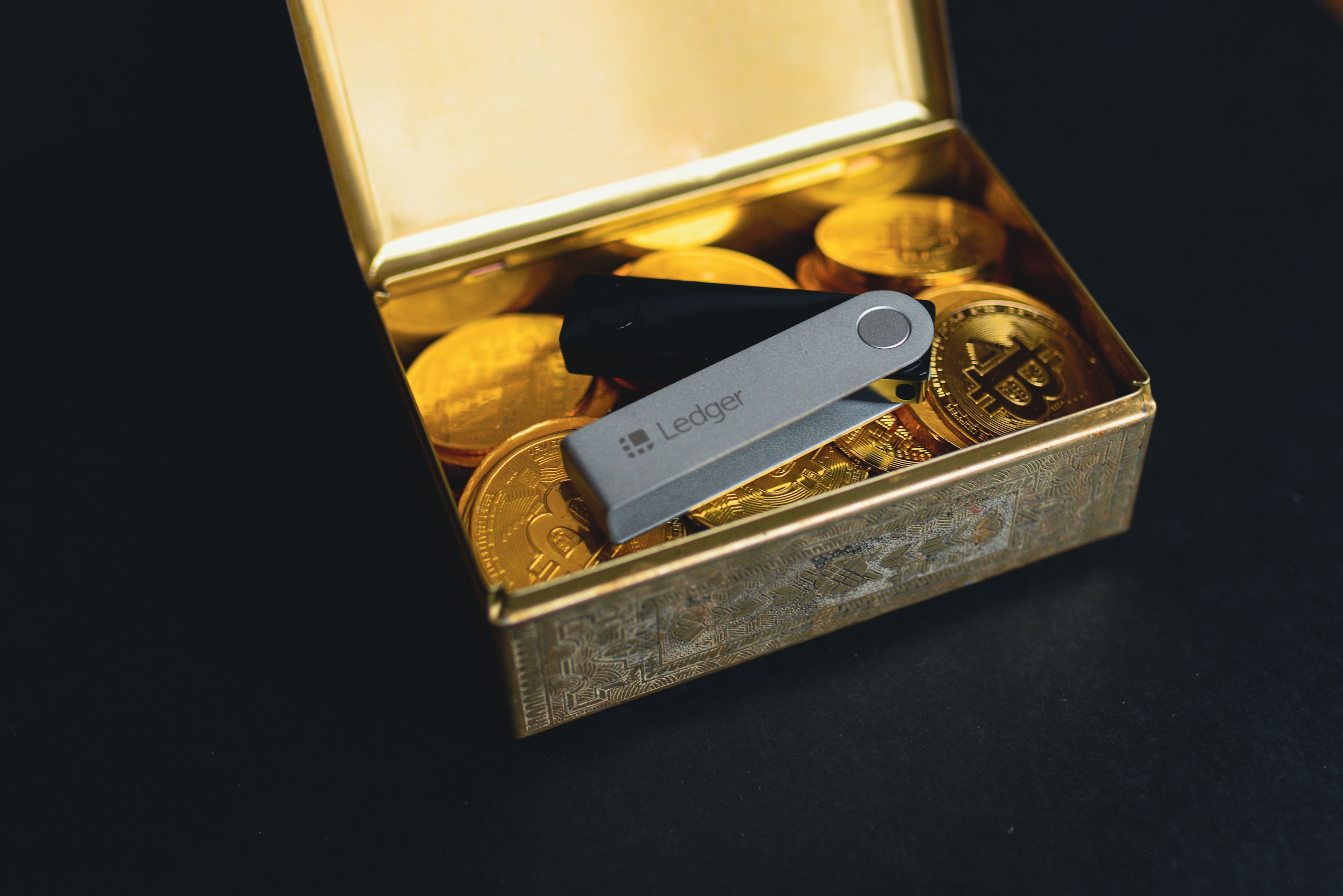Private/Life
The life of crypto assets

Emily is 30 years old. Her uncle has gifted her circa £9m in crypto assets and she is buying a £4m house with her partner.
Legal angles: Now that Emily has the crypto assets, what sort of hurdles / checks does she face in the conveyancing process?

Kate Jackson, Senior Associate, Residential Property
Emily will need to set up her own hardware wallet to receive the crypto assets from her uncle. Whilst it is clearly very advantageous for Emily to have been gifted such large sums, she will need to be able to demonstrate to her conveyancing solicitor the source of these funds. As they have been gifted to her by her uncle, he will also have to provide evidence of his identity to her conveyancing solicitor.
Her solicitor will also wish to contact her uncle and make clear to him the following:
- that they are not acting for him
- that they are treating the sums as a gift
- that the sums are not being protected in any way that would enable them to be repaid to him in the future.
As she is buying a property for £4m and has crypto assets valued at £9m, we can assume that she is not obtaining a mortgage and therefore we do not have to comply with any lender requirements with regards to the gift.
Follow the (crypto) money
The process for confirming source of funds can take time.
When it comes to crypto assets, the requirements are essentially the same as any asset. We will need to see evidence of the realised assets being converted from a bank account to the crypto asset.
Traditionally, we would be looking at following the source of funds for money held in a bank account. We would need to see the paper documentation confirming the release of funds and the associated deposit into the client’s bank account, for example:
- salary, you would want to see confirmation of employment, pay slips and bank statements showing salary entering that account
- share/asset sales – we would need to see evidence of the sale and evidence of funds entering the client’s bank account
- inheritance – we would need to see evidence from the estate solicitor of the release of funds and then show them entering the client’s bank account.
If funds are in the form of a cryptocurrency then you would want to see evidence of the funds being placed onto an On-Ramp exchange such as Binance, Coinbase or Kraken to name a few. On Ramp being fiat money being converted in cryptocurrency.
Cryptocurrencies are unique when comparing them to traditional money. They make use of a technology called 'blockchain'. This is, in short, a distributed ledger of all transactions. What this means is that all the transactions ever made for each cryptocurrency are recorded on a single blockchain, holding its entire history.
The ledger provides full transparency and can be viewed just like a bank statement. You can view every transaction together with a record of any appreciation in value of the crypto currency.

Photo by Art Rachen on Unsplash

Photo by Vadim Artyukhin on Unsplash
Shortly after purchasing the property, Emily and her partner married and had two children. Unfortunately, Emily and her husband have grown apart and are considering an (amicable) divorce. They never signed a prenup, and their children are not yet 18 years old. Emily’s crypto assets have grown in value by 25%.
Legal angle: how does the court treat crypto assets in divorce?

Ursula Danagher, Partner, Head of Family (London)
Zara Jordan, Solicitor, Family
Under family law in England and Wales, crypto assets are treated just like any other property assets.
Although Emily and her husband are seeking to resolve their finances amicably, the Family Court has the power to divide, transfer or sell crypto assets as part of a Financial Order.
Crypto assets: Disclosure
In the first instance, Emily and her husband will owe a duty of full and frank financial disclosure towards each other, i.e. they will have to disclose all of their financial assets, either solely or jointly owned, to include their liabilities, pensions and respective incomes on an ongoing basis pending settlement or Final Order of the Court. The duty of disclosure extends to crypto assets.
Although Emily is happy to disclose the value of her crypto investments, some husbands / wives may have concerns that crypto assets are being hidden as a result of their anonymous nature.
In these instances, it is possible to check historic bank statements for transfer activity and deposits into crypto exchanges. Where a substantial crypto portfolio is suspected, it is possible to instruct a specialist forensic expert to investigate further and assist with tracing.
Ultimately, the Family Court has the power to infer that there are undisclosed assets from circumstantial evidence and the Court is able to draw adverse inferences against the non-disclosing spouse. This could result in the Court awarding the non-disclosing spouse a smaller share of the disclosed assets than it otherwise would; and potentially result in a Costs Order being made against them.
Crypto assets: Valuation
Once all marital assets are disclosed, the next step is the valuation of these assets.
In theory, a valuation of crypto assets is relatively easy to achieve as the current trading prices are widely available online; however crypto assets are highly volatile and can experience dramatic fluctuations in value.
With divorce proceedings sometimes taking up to a year to fully conclude, this could mean that the value of Emily’s crypto assets will fluctuate during this time.
Crypto assets: Division
Once valuations are agreed, the next step for Emily and her husband would be to consider the division of their marital assets, ideally, in a way which achieves a clean break between them enabling them to both move forward with their lives with financial independence.
Emily may choose to retain the crypto assets in full and instead offer her husband other family assets of an equivalent value, or Emily may prefer to split the crypto asset portfolio with her husband, i.e. he would open up his own crypto accounts to receive his share. Alternatively, it may be that Emily’s husband does not wish to hold crypto assets in which case his ‘share’ can be sold and liquidated into traditional cash.
Whether Emily retains her crypto portfolio and offsets its value against other marital assets depends on her confidence in the market and her appetite for risk.
Generally, it is advisable for both spouses to share a mix of the more stable and more risky assets so that they are both equally impacted by any fluctuation in their values, i.e. they will equally benefit if the crypto assets do well but they will equally be impacted if the crypto assets experience a crash in value.
This is important as a Court will not re-visit a Financial Order on the basis that assets have changed in value. It is an established principle that where price fluctuations can be anticipated as part of the natural function of a type of asset, which would be the case with crypto assets, the Family Court will not re-open a case even where those fluctuations prove to be extreme (whether for better or worse).
The other consideration will be the couple’s immediate needs, i.e. how they both intend to re-house, what liquid sums will be required for deposits etc or whether one spouse intends to buy out the other’s share in the Family Home. The marital assets should be split in a way which meets both spouses needs to include their immediate capital requirements.

Photo by Nick Chong on Unsplash

Photo by Kanchanara on Unsplash
Emily sadly passes away shortly after finalising all the divorce matters. In her Will, she left the bulk of her assets to her two minor children; she also left some valuable crypto assets to her nephew who she has appointed as her Executor.
Legal angle: What is the legislation in terms of getting access to the crypto assets? What is the best way to structure these assets?

Beverley Collins, Solicitor, Private Client
Mandy Casavant, Partner, Private Client
As with traditional assets, it is Emily’s executor who will be responsible for accessing her crypto assets and transferring them to her chosen beneficiaries. However, different platforms have different rules about how an asset may be accessed on death and, if applicable, the contractual terms and conditions of those platforms should be carefully considered as they can limit the access of executors.
To add a further complication, ability to access Emily’s crypto assets could become more difficult by needing to determine in which jurisdiction the assets fall and thus the specific authority the executor will need to show (e.g. a death certificate, Grant of Probate or perhaps a specific court order).
Accessing crypto assets
To identify and access her crypto assets, Emily’s executor will need her passwords and personal keys. Therefore, Emily should keep a hard copy list with instructions on how to access each crypto asset and her preferences for how her executor deals with each one. This list should not just be the information on the valuable NFTs (non-fungible token) or cryptocurrencies but also social media accounts, password protected photographs stored on the cloud or computer, digital music library, loyalty points, digital wallets (the list goes on!). It should be kept up to date and in a safe place, Emily should not share this list with anyone but should let her executor know where it is kept.
As some platforms prohibit the recording of passwords in writing, Emily may use a secure digital password manager with just the master password being provided to the executor. Due to cryptocurrency and NFTs having public and private keys which are needed to access the asset, it is often recommended that these keys are kept in a safety deposit box (details for which can be stored in Emily’s crypto asset list) for the loss of these keys can result in the loss of the asset!
Tax planning for crypto assets
Structuring how Emily’s crypto assets sit within her estate is important for tax purposes as well as for practical purposes, for how a crypto asset is owned and the rights which are allowed to be passed on can increase the steps and length of time required to transfer the asset to Emily’s chosen beneficiaries. The use of trusts (made under Emily’s Will or during her lifetime) may be helpful for tax planning, potentially mitigating her inheritance tax liability on her death by removing a fluctuating asset from her estate for inheritance tax assessment. For trusts set up during her lifetime, this could also provide easy access to the crypto asset held on her death, not requiring a grant of probate to enable access.
Nevertheless, as a new and developing area of law careful consideration should be given to HM Revenue and Customs comments on the taxation of crypto assets, and whether they fall under the laws of England and Wales or another jurisdiction.
Emily may just leave outright gifts of her crypto assets under her Will. Due to the personal nature of some of these assets (photographs and social media) and the complex nature of others (cryptocurrencies) she should consider appointing a separate digital executor to deal with them. This might be someone who can better appreciate the nature of the asset and can also be sensitive to its content. For example, Emily may not want her nephew reading her personal emails, or the files on her computer, but rather a friend to deal with this and delete sensitive items before the computer passes to her minor children. For this to be possible, Emily may need to have specific powers included to enable her digital executors to be able to deal with her assets effectively.
Emily should carefully consider the definition of any asset she leaves with digital data on it, such as a computer. This will ensure that there is no confusion as to whether the data stored on the object is to pass to the recipient of the computer or if the computer is to be wiped or modified. Furthermore, the rights Emily has to an asset might be limited, and thus the rights she is able to pass to her chosen beneficiary also limited. For example, music bought in iTunes is only licensed to the individual account holder and therefore cannot be transferred to any beneficiary.

Photo by regularguy.eth on Unsplash
The story we’ve told is made up and over-simplified; yet the reality is that scenarios like this one – only real and therefore more complicated – are occurring more regularly and will one day, sooner than most of us think, become common. Both private individuals and professional advisors need to be aware of the common implications of dealing with crypto assets and the ways of structuring and protecting them so that those who own them, as well as future beneficiaries, can derive maximum value.